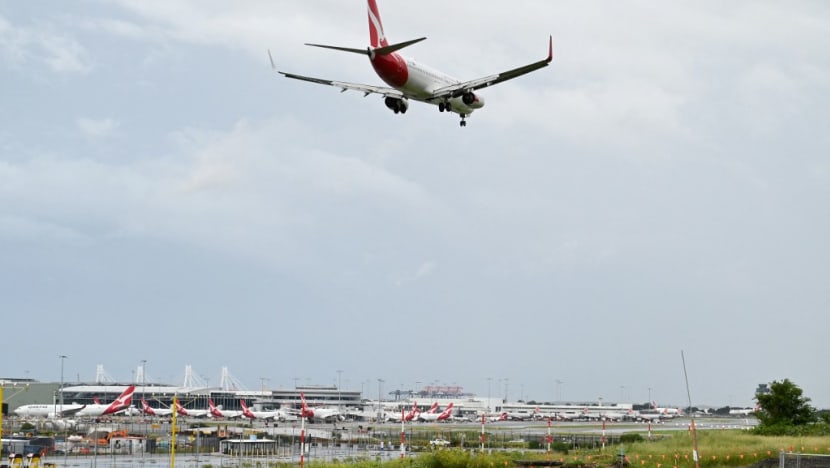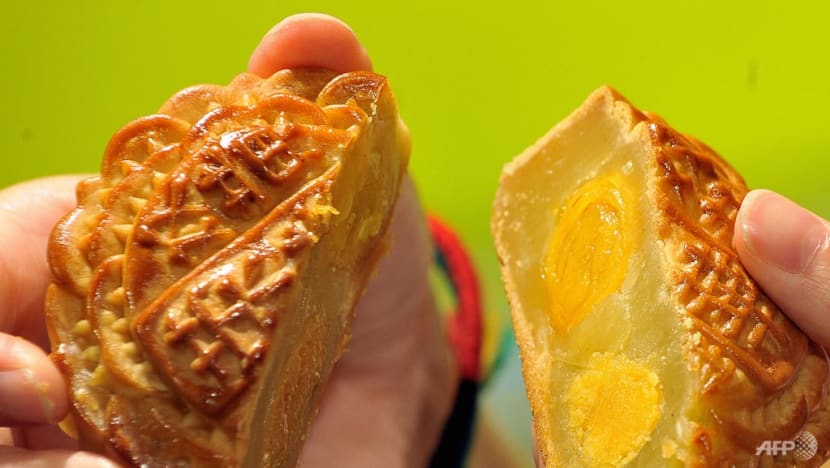CNA Explains: What food items am I allowed take to Australia and New Zealand?
Besides half-eaten sandwiches, what else do travellers need to watch out for?

SINGAPORE: An Australian woman recently made the news after she said she was fined A$2,664 (S$2,535) for bringing home a Subway sandwich she had picked up while on a layover in Singapore.
Jessica Lee posted a TikTok video detailing the incident, in which she explained that she did not realise that the immigration declaration form she filled up also applied to her sandwich.
“I didn’t tick chicken and I didn’t tick lettuce,” she said.
Australia has restrictions on the import of items that could post a biosecurity hazard – including meat and agricultural products.
This is to “prevent the introduction of harmful pests and diseases”, Australia’s Border Force said on its website. Items that do not comply with requirements will be exported or destroyed at the importer’s expense.
New Zealand has similar restrictions, with a couple of differences. So here are some things you should know before you pack your bag for either country.
Q: Do I need to declare all food items?
Not all food items taken with you to Australia need to be declared.
Items such as biscuits, bread, cakes, pastries, tea, sweets and chocolate for personal consumption do not need to be declared.
But they must be fully cooked, do not require refrigeration and do not contain meat. Any filling or topping must also be cooked with the cake.
This rules out the likes of cheesecakes and mooncakes, which must be declared.

Q: What items must I declare?
Travellers must declare if they are taking seeds, honey products, meat or coffee to Australia.
Up to 10kg of roasted coffee is permitted into Australia for personal use if it is roasted, ground or processed into instant coffee. Kopi Luwak – the much-hyped "civet poop coffee" – is also allowed in the form of whole beans, ground or instant coffee, as long as it is made with roasted beans, as well as commercially prepared and packaged.
Honey products are allowed, but they must be inspected by a biosecurity officer on arrival to confirm that it is free from contamination.
Australia allows canned meat products to be brought in, but they must be in jars, cans or retort pouches, a type of food packaging made from plastic and metal foil. They must also be shelf-stable, which means they do not need to be refrigerated or frozen to maintain quality. Items will be inspected to ensure that they comply with requirements.
Uncanned meat – including preserved ones like ham, bacon, salami and sausages – are not allowed into Australia unless accompanied by an import permit.
An exemption to this is uncanned meat products from New Zealand, which may be brought in if they meet a set of requirements and declared upon arrival. These will also be inspected to ensure it complies with regulation.
Jerky or biltong – forms of dried or dehydrated meat – may be allowed if they are not made from pork and adhere to requirements. Meat floss may be brought in as well, as long as it is commercially manufactured and very finely shredded, with no identifiable meat pieces.
Items such as duty-free products and prescription medicine must also be declared.
New Zealand classifies certain products as “risky items”, which must be declared on travellers’ passenger arrival cards.
“Risky items” listed on the New Zealand Customs website include food, produce, meat, fish, poultry, honey, ingredients used in cooking and all dairy products.
Wooden items and traditional or herbal medicine, as well as used shoes, sport and outdoor equipment are also included in the list.
Travellers must also check if they are bringing in children’s crayons, finger paints and watercolour paints, to “protect children from toxic elements” such as mercury, lead and chromium that may be present, the website said.
Q: What items are not allowed at all?
Items that are classified as weapons, counterfeit goods or toxic substances are often not allowed into most countries.
In addition, Australia prohibits travellers from bringing in home-cooked food, as well as food from the plane or ship they arrived in.
Whole eggs are also not allowed, unless accompanied by an import permit. Fresh fruit is also on the list of items travellers are not allowed to bring.
New Zealand, on the other hand, completely restricts the import of whole eggs into the country. Some kinds of fish – such as trout and char – may not be brought in as well.
















